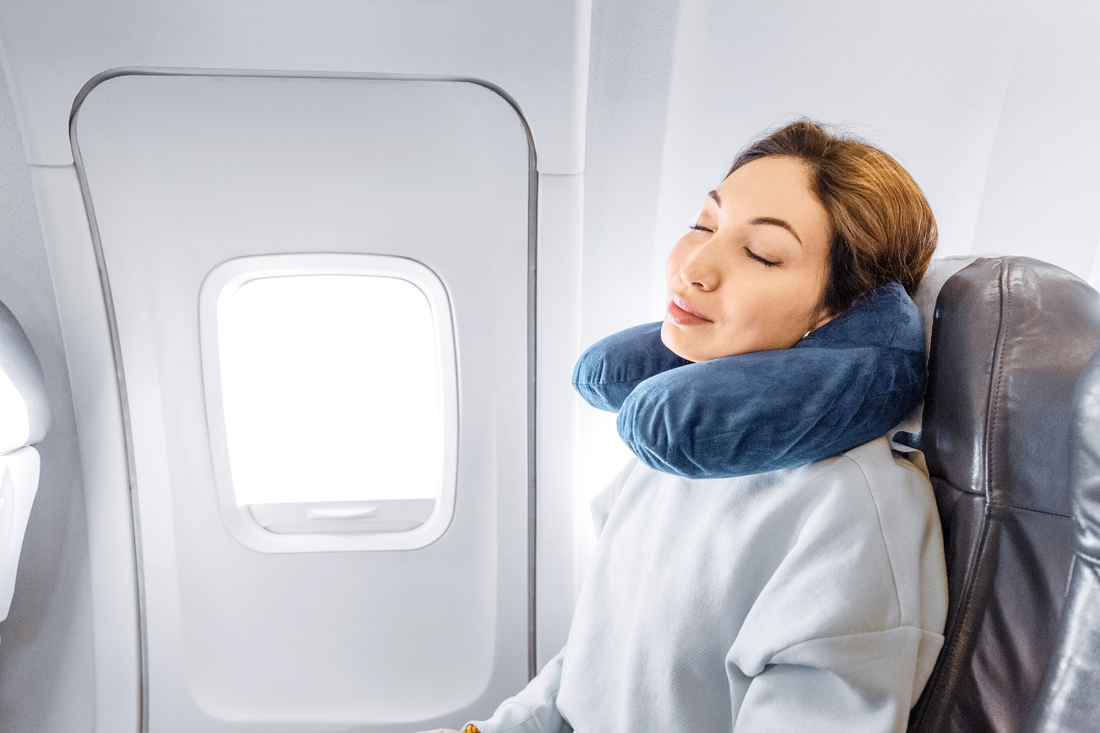Conquer Jet Lag: Your Ultimate Guide to Seamless Travel

It's travel season—time to pack your bags, board that plane, and embark on new adventures! With the world opening up again, many of us are eager to explore faraway places. But there's one pesky little travel companion we all dread: jet lag. Fear not! With a few smart strategies, you can mitigate its effects and make the most of your journey.
Understanding Jet Lag
Simply put, it's the disruption of your circadian rhythm—your body's internal clock—caused by crossing multiple time zones. Your body is still synced to your original time zone, which can mess with everything from your sleep patterns to your digestion. While jet lag is temporary, its symptoms can put a damper on your trip. Let's dive into how you can tackle it head-on.
- Adjust Your Sleep Schedule Early
Preparation is key. About three days before you depart, start tweaking your sleep schedule to match your destination's time zone. If you're heading east, aim to go to bed and wake up 30 to 60 minutes earlier each day. If you're traveling west, do the opposite—stay up and wake up later. This gradual adjustment helps your circadian rhythm start to shift in the right direction.
- Embrace Natural Light
Natural light is your best friend when it comes to resetting your internal clock. Upon arrival, spend as much time outdoors as possible. If you arrive during the day, soak up the sunlight to help your body adjust to the new time zone. Conversely, if you land at night, avoid bright lights and try to get some sleep.
- Stay Hydrated
Dehydration can exacerbate the symptoms of jet lag, so make sure you drink plenty of water before, during, and after your flight. Avoid alcohol and caffeine, as they can dehydrate you and disrupt your sleep.
- Use Melatonin Wisely
Melatonin is a hormone produced by the pineal gland in your brain. It helps regulate your circadian rhythm, essentially telling your body when it's time to sleep and wake up.
If you’re traveling east, take melatonin in the early evening (1-2 hours before your desired bedtime) at your destination. This will help signal to your body that it's time to wind down and prepare for sleep.
When heading west, you might not need melatonin right away. Instead, focus on exposing yourself to natural light during the day. If you find it difficult to sleep once you’ve adjusted, taking melatonin just before your new bedtime can help.
- Move Your Body
Physical activity boosts the production of endorphins and other hormones that promote wakefulness during the day and restful sleep at night. Doing exercise during daylight hours helps reinforce your body’s natural circadian rhythms. A light workout, even just a walk, for 20-30 minutes/day can do wonders. Morning workouts are especially effective if you’re trying to adjust to an earlier time zone.
- Manage Stress with Ashwagandha
Traveling, though exciting, can be stressful. Ashwagandha is an adaptogenic herb known for its stress-relieving properties; it lowers cortisol levels, promoting a sense of calm and relaxation.It also enhances the production of GABA, a neurotransmitter that supports restful sleep. Start incorporating ashwagandha into your routine a few days before your trip to build up its stress-relieving effects.Whether in supplement form or as a tea, Ashwagandha can support your body's ability to manage stress, making your transition to a new time zone smoother.
- Nap Smartly
While napping can be tempting, be strategic about it. If you must nap, limit it to 20-30 minutes to avoid interfering with your nighttime sleep. Power naps can refresh you without making it harder to fall asleep later.
- Stick to a Routine
Once you arrive at your destination, eat meals and go to bed at local times to help your body acclimate faster. Consistency is vital in resetting your internal clock.
Final Thoughts
Jet lag can be a nuisance, but fortunately it’s temporary. By doing all of the above, you can minimize its effects and enjoy your adventures to the fullest. Bon voyage and happy travels!















